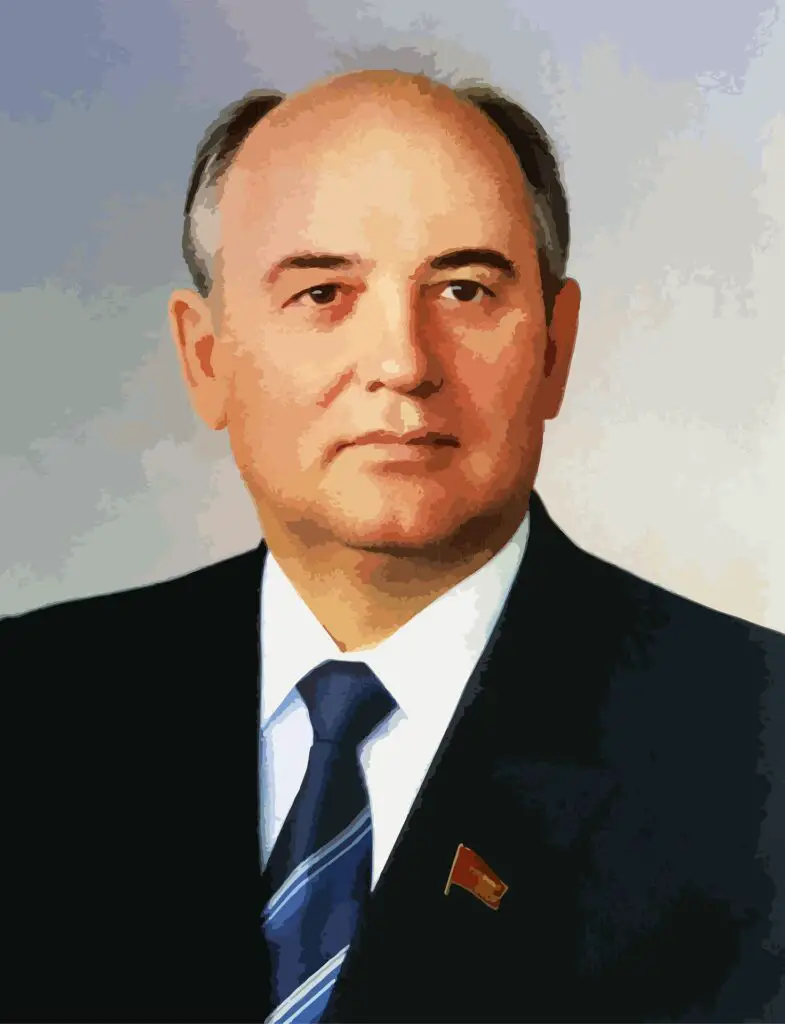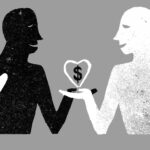September 7, 2022
We hope you enjoy our articles. Please note, we may collect a share of sales or other compensation from the links on this page. Thank you if you use our links, we really appreciate it!
Mikhail Gorbachev, the famous leader who spearheaded the transition from communism to democracy, particularly in Eurasia, and who witnessed the collapse of the Soviet Union under his watch, died a few days ago. While his death received much attention worldwide, within his country, which is now engaged in a war with the neighbor, Ukraine, the death did not receive much attention.
Gorbachev will be mainly remembered for his policies of perestroika (restructuring) and glasnost (openness), which played a major role in lifting the ‘iron curtain’. The policies externally led to the collapse of the Berlin Wall, dismantling of the authoritarian regimes in Eastern Europe, intense diplomatic engagements with Europe and the US. And internally, it paved the way for democracy in Russia and other countries which were earlier part of the Soviet Union and opened the Russian economy and society to external influences. It is another story that many of these countries, despite the veneer of democracy, lapsed to authoritarianism and chaotic politics. In some of these countries, the same old leaders, who were party leaders during the Soviet era, held reins of power for decades while maintaining a façade of democracy.
The Soviet Union under the leadership of Brezhnev had witnessed stagnation in the 1970s. There was massive investment in military industrial complex, but in other indicators of development the Union fell behind developed countries. It overstretched – from Latin America to Africa to Asia – to promote communism and communist leaders, which drained its resources. Massive investment in arms and armament to match the forces of the West led to negligence of development in other sectors of economy and society. Communism as an ideology drawing from the philosophy of Marx and Engels and modified by Lenin to suit the Russian soil, might have a had a grand vision in the beginning, thus providing energy and enthusiasm to the leaders and party workers, but the vision, when put to practice, gradually got embroiled in party politics and massive corruption. The leaders who succeeded Brezhnev tried to address these issues. The policies like socioeconomic acceleration initiated by leaders like Andropov in early 1980s aimed to revive the economy and rejuvenate society, but they largely failed.
Gorbachev was known for his liberal bent of mind since his early career. He was a supporter of de-Stalinization policies of Khrushchev. In his memoir, ‘Khrushchev Remembers’, Khrushchev elaborated brutal actions of Stalin against dissidents. Gorbachev believed that the Soviet Union could thrive with a more liberal social democratic frame, than by following authoritarian policies of Stalin which involved massive purges and killings. After rising to the helm of political affairs in Moscow in the mid-1980s he worked on his ideas effectively. Perestroika aimed at restructuring the political system and glasnost aimed at opening society to pluralistic ideas, thus allowing opposition and dissent. At the international front he actively took part in dialogues with international leaders like Ronald Reagan and George H. Bush. It was certainly a bold step on part of Gorbachev to engage in diplomacy with these leaders, some of whom had termed the Soviet Union, which he led, ‘evil empire.’
The policies of Gorbachev had two-fold major consequences – one to his liking and the other to his dismay. To his liking, Russia and East Europe became democratized, thus expediting what Samuel Huntington termed as the ‘third wave of democracy’, Berlin Wall collapsed, Germany united, the superpower rivalry ended, and the prospects of East-West peaceful coexistence appeared bright. But to his dismay, the Soviet Union, to which he wanted to provide a democratic face without abandoning socialism, collapsed. The communist project, founded by Lenin and his colleagues like Trotsky, collapsed after about 70 years. Boris Yeltsin emerged as the new leader of Russia, and Gorbachev lost power. The leaders of Russia, Ukraine and Belarus announced at Minsk the end of the Union in 1991 and creation of the Commonwealth of Independent States. The loss of the Soviet Union and its superpower status struck a melancholic chord with sections of Russians, and it appears that sense of loss is still hurting many of them. It is no surprise, hence, when Vladimir Putin called the Soviet collapse ‘the greatest geopolitical catastrophe of the century,’ it resonated with sections of Russians.
Gorbachev left a mixed legacy. He emerged as a champion of democracy and peace, and remained immensely popular in the world, though his popularity at home was contested. It might have created in him angst that his vision of democracy, international peace and amity was not put into practice effectively at home and abroad. The increasing political polarization, lack of dialogue between the US and Russia, the ongoing war between Russia and Ukraine, and the rise of authoritarianism worldwide, could have not been pleasing gifts to the nonagenarian leader at the time of his death.
(A different version of the article was published on my Times of India blog, Periscope: https://timesofindia.indiatimes.com/blogs/periscope/the-legacy-of-mikhail-gorbachev/)



